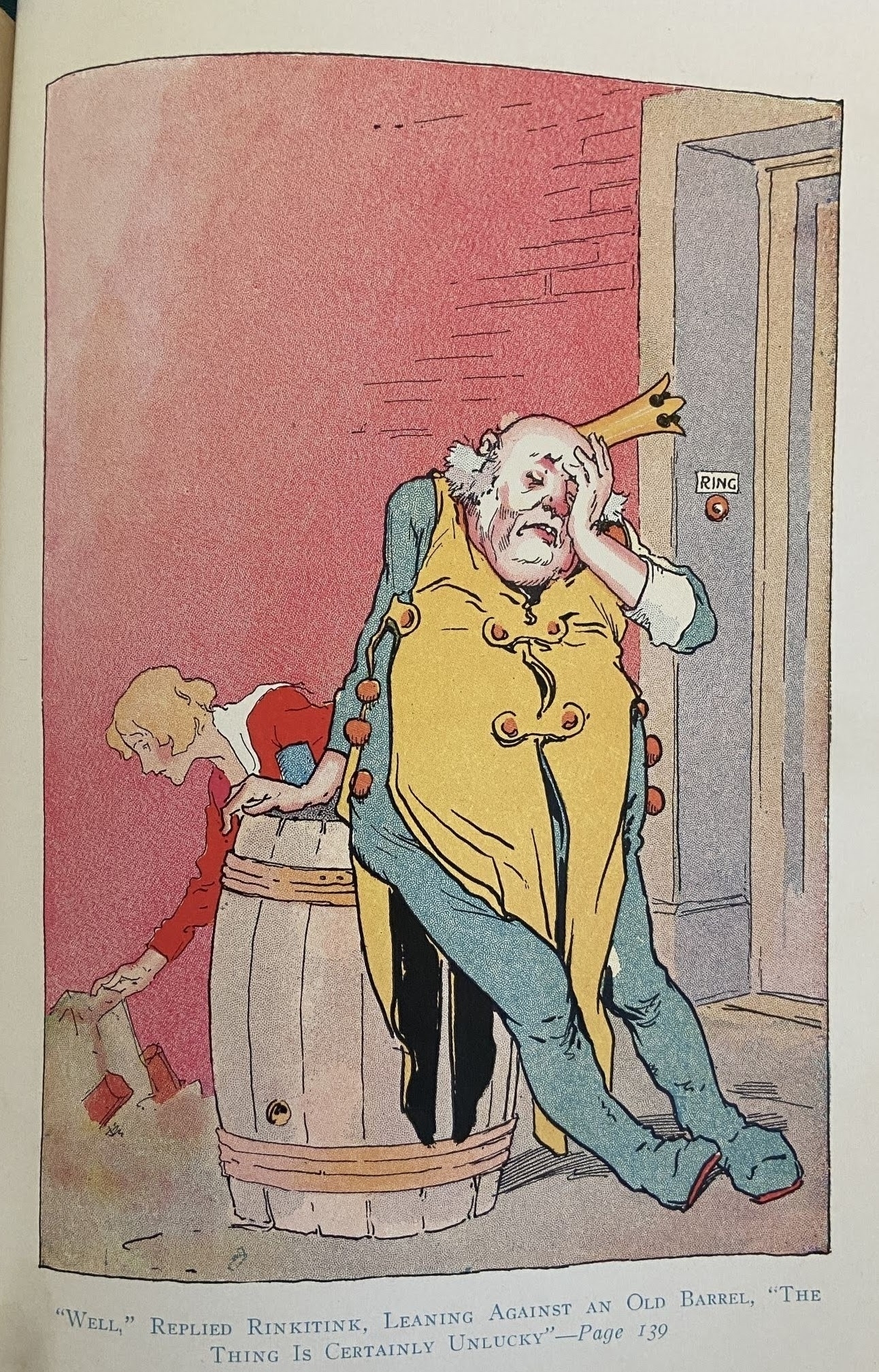
King Rinkitink of Gilgad, by John R. Neill, from Rinkitink in Oz, by Frank L. Baum, 1916
From The Sacred Journey, Frederick Buechner:
For reasons that I can only guess at now, no one I came to know during that first year in Oz left a deeper mark on me than a plump, ebullient king named Rinkitink. He was a foolish man in many ways who laughed too much and talked too much and at moments of stress was apt to burst into unkingly tears; but beneath all that, he gave the impression of remarkable strength and resilience and courage even…
Rinkitink was a very vulnerable man, silly and unstable in numberless ways, but in his fatness he seemed also somehow solid and substantial, eccentric and yet reliable with his slippered feet planted heavily on the ground and his heart in the right place. Like a tree that has been blown for years from so many directions by so many winds that none of them can ever quite blow it down, he seemed strong in his very vulnerability. In his capacity to laugh and weep at the drop of a hat and in general to make a fool of himself, he seemed wise with the wisdom of a child who sees better than his elders that the world is indeed something to laugh and weep about and who, more realistically than the rest of us, accepts his own foolishness as part of the givenness of things. Frightening and terrible adventures befall him in the course of Baum’s book, but somehow he always manages to come riding out of them on the back of his faithful goat Bilbil. The world can wound him and scare the daylights out of him, but never, you feel, can it destroy him. It is only the world of the fairy tale to be sure, but nonetheless he has overcome that world, and I have remembered him with admiration and love ever since.
In different guises (though always fat) and under different names, Rinkitink has haunted me always…
… these books were all childhood or early boyhood reading – but certain patterns were set, certain rooms were made ready, so that when, years later, I came upon Saint Paul for the first time and heard him say, “God chose what is foolish in the world to shame the wise, God chose what is weak in the world to shame the strong, God chose what is low and despised in the world, even things that are not, to bring to nothing things that are,” I had the feeling that I knew something of what he was talking about. Something of the divine comedy that we are all of us involved in. Something of grace.